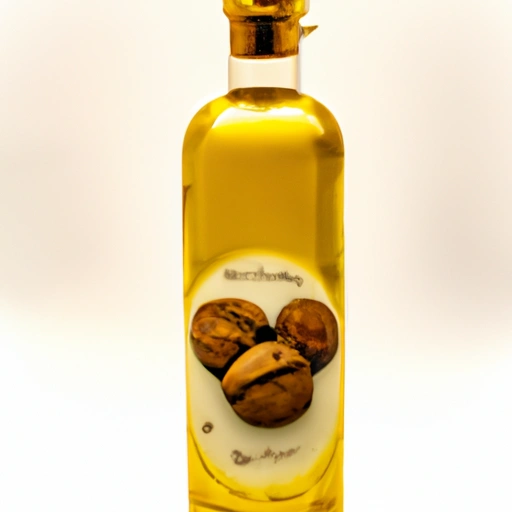Walnut Oil
Description

Walnut oil is a plant-based oil extracted from the meat of mature walnuts (Juglans regia). It's known for its rich, nutty flavor and is highly prized in both culinary and artistic applications. Unlike other vegetable oils, walnut oil is unrefined, which helps retain its flavor and nutritional properties.
Common uses
Walnut oil is often used as a finishing oil in various dishes, where its flavor can be fully appreciated. It's commonly drizzled over salads, blended into vinaigrettes, or used as a dip for bread. While not typically used for high-heat cooking due to its low smoke point, it can lend a delightful flavor to baked goods and desserts.
Nutritional value
Calories
One tablespoon (13.6 grams or about 0.5 ounces) of walnut oil contains approximately 120 calories.
Protein
Walnut oil contains negligible amounts of protein, less than 0.1 grams per tablespoon.
Fat
With approximately 14 grams of fat per tablespoon, walnut oil is rich in polyunsaturated and monounsaturated fats, including omega-3 and omega-6 fatty acids.
Carbohydrates
Walnut oil is carbohydrate-free. It contains no sugars, fiber, or starch.
Vitamins
Though not a significant source of vitamins, walnut oil contains small amounts of vitamin E, a natural antioxidant.
Minerals
Minerals in walnut oil are minimal, but it does provide trace amounts of minerals such as selenium and phosphorus.
Health benefits
Walnut oil is known for its potential health benefits, which include improving heart health due to its omega-3 content, supporting brain function, and providing anti-inflammatory properties. Its vitamin E content may also contribute to skin health when applied topically.
Potential risks
As with any food product, walnut oil may pose risks to individuals with walnut or tree nut allergies. Additionally, its high calorie and fat content can contribute to weight gain if consumed in excessive amounts.
Common recipes
Walnut oil is used in a variety of recipes, from classic French walnut oil salad dressing to contemporary dishes like walnut oil pesto or walnut oil-infused baked goods.
Cooking methods
Due to its low smoke point, walnut oil is not recommended for frying but can be used in cold preparations or added to dishes after cooking to retain its flavor and nutritional value.
Pairing with other ingredients
Walnut oil pairs well with autumnal and earthy flavors such as mushrooms, root vegetables, cheeses, and apples. It also complements green salads and grains like quinoa and farro.
Summary
Walnut oil is a versatile and flavorful oil that enhances a range of dishes with its rich, nutty essence. While it offers notable health benefits, it's best enjoyed in moderation due to its caloric density. Its historical use as both a culinary delight and an artist's medium makes it an interesting and valuable addition to any pantry.